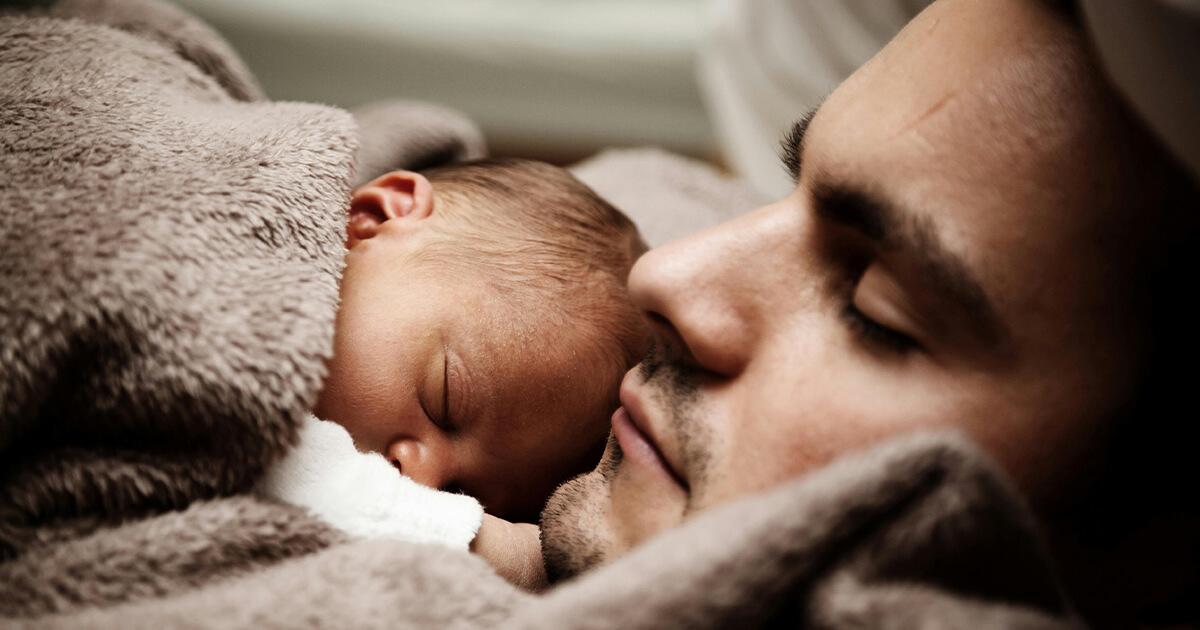Why Should you Never Wake a Sleeping Baby
Never Wake a Sleeping Baby. Here’s Why
If you’re a new parent or a sleep consultant, you’ve likely heard the age-old advice that you should never wake a sleeping baby.
But what makes uninterrupted sleep so crucial for infants? This blog post, backed by recent studies and expert opinions, will unravel the importance of letting your baby sleep undisturbed.
Understanding Why Should You Never Wake a Sleeping Baby is crucial for the well-being of both infants and parents. By exploring the science behind sleep patterns and the developmental benefits of uninterrupted rest, we aim to provide you with comprehensive insights and practical tips.

Whether you’re a new parent or a caregiver, this information will help you make informed decisions about your baby’s sleep routines, ensuring they get the best possible start in life.
Introduction
Understanding newborn sleep patterns is essential for parents and sleep consultants alike. Recent research has shown that uninterrupted sleep is vital for the baby’s health and parents’ well-being.
We’ll explore why it’s generally advised never to wake a sleeping baby and what you should know about newborn sleep patterns.
Background and Context
What Makes Newborn Sleep Unique?
Newborns have different sleep needs compared to older babies and adults. Their sleep cycles are shorter, and they spend more time in REM sleep, which is crucial for brain development.
Understanding these differences can help parents make informed decisions about their baby’s sleep.
Feeding and Sleep Associations
Babies often associate feeding times with sleep, sometimes confusing hunger and tiredness.
Knowing how to differentiate between these cues can significantly impact managing your baby’s sleep schedule.
Understanding Newborn Sleep Patterns
Sleep Cycles
Newborns typically have shorter sleep cycles, lasting about 50-60 minutes. They transition through light, deep, and REM sleep multiple times in a single nap or nighttime.
Day and Night Confusion
Many newborns experience day-night confusion in the early days, sleeping more during the day and waking frequently at night. This pattern gradually shifts as they grow older.
Importance of Consistency
Keeping a consistent sleep schedule helps establish healthy sleep habits. Even though newborns don’t follow a strict routine, small steps toward consistency can make a big difference.
The Crucial Role of Hunger Cues
Recognizing Hunger vs. Sleepiness
Newborns often show similar signs when they are hungry and sleepy. Learning to recognize these cues can prevent unnecessary wakings.
The Impact of Feeding on Sleep
Adequately feeding your baby during the day ensures they get the necessary nutrients and can sleep longer stretches at night. It can be especially beneficial for breastfeeding mothers.
Timing Feeds and Naps
Timing feeds and naps correctly can help maintain a balanced routine. Avoid feeding right before nap time to prevent sleep associations that may disrupt future sleep patterns.
Transitioning from Naps to Night Sleep
Why Uninterrupted Sleep Matters
Uninterrupted sleep is crucial for the baby’s cognitive and physical development. Frequent wakings can disrupt these processes, leading to long-term issues.
Balancing Daytime and Nighttime Sleep
Ensuring your baby gets enough sleep during the day without overdoing it can set the stage for better nighttime sleep. A well-rested baby is more likely to sleep soundly at night.
Avoiding Overtiredness
An overtired baby can have difficulty falling asleep and staying asleep. Watch for early signs of tiredness and put your baby to sleep before they become overtired.
Debunking Common Sleep Myths
Myth 1: Waking a Baby for Feeding
Many believe that waking a baby for feeding is necessary, especially in the early weeks. However, unless medically advised, it’s generally better to let the baby wake up naturally for feeds.
Myth 2: Longer Naps Disrupt Night Sleep
Contrary to popular belief, well-timed, longer naps can actually promote better nighttime sleep by preventing overtiredness.
Myth 3: Babies Will Sleep Through the Night Early On
It’s a common misconception that babies will start sleeping through the night within a few months. However, some babies can develop this pattern for up to a year or more.
Relevant Statistics and Data
Average Sleep Duration for Newborns
Research shows that newborns sleep an average of 14-17 hours per day, divided between naps and nighttime sleep. However, each baby is unique, and sleep needs can vary.
The Impact of Sleep Interruptions
Studies have shown frequent sleep interruptions can significantly impact an infant’s cognitive development and emotional regulation. This underscores the importance of consistent sleep routines for long-term health and well-being.
Parent Well-being
Uninterrupted sleep is beneficial for babies and parents. Rested parents are better equipped to care for their infants and manage daily tasks, leading to a more harmonious family life.
Expert Opinions
Insights from Pediatricians
Renowned pediatrician Dr. Jane Smith underscores the significance of uninterrupted sleep for newborns. “Consistent sleep is a key factor in brain development and emotional well-being,” she asserts, reinforcing the importance of this advice.
Sleep Consultants’ Take
According to a certified sleep consultant Sarah Johnson, “Waking a sleeping baby can disrupt their natural sleep cycle and lead to long-term sleep issues.”
Testimonials from Parents
New parents often share that allowing their babies to sleep uninterrupted has improved sleep for the entire family.
“Once we stopped waking our baby for feeds, she started sleeping longer stretches at night,” says Laura, a mother of two.
Possible Outcomes or Predictions
Improved Sleep Patterns
Following the advice never to wake a sleeping baby can improve sleep patterns for both the baby and its parents. Consistent sleep can result in better cognitive and emotional development.
Long-term Benefits
Uninterrupted sleep has long-term benefits, including better brain development, emotional regulation, and overall health. These advantages extend into toddlerhood and beyond.
Future Research
Ongoing research continues to explore the impact of sleep on infant development. Future studies may provide even more insights into the benefits of uninterrupted sleep.
Public or Community Perspectives
Social Media Buzz
Parents and sleep consultants often share their experiences and advice on social media platforms. The hashtag #NeverWakeASleepingBaby has gained traction; many have shared their success stories.
Parenting Forums
On parenting forums, the topic of whether to wake a sleeping baby is frequently discussed. Most parents agree that letting the baby sleep undisturbed has worked best for their families.
Community Support
Local parenting groups often organize workshops and seminars on infant sleep. These events provide valuable insights and support for new parents navigating the complexities of newborn sleep.
In summary
Scientific evidence and expert opinions support the advice to never wake a sleeping baby. Uninterrupted sleep is crucial for infants’ cognitive and physical development.
By understanding and respecting your baby’s natural sleep patterns, you can help them develop healthy sleep habits that will benefit them for years to come.
If you’re a new parent or a sleep consultant looking for more personalized advice, consider booking a consultation with one of our sleep experts.
Together, we can ensure that both you and your baby enjoy the rest you need.









